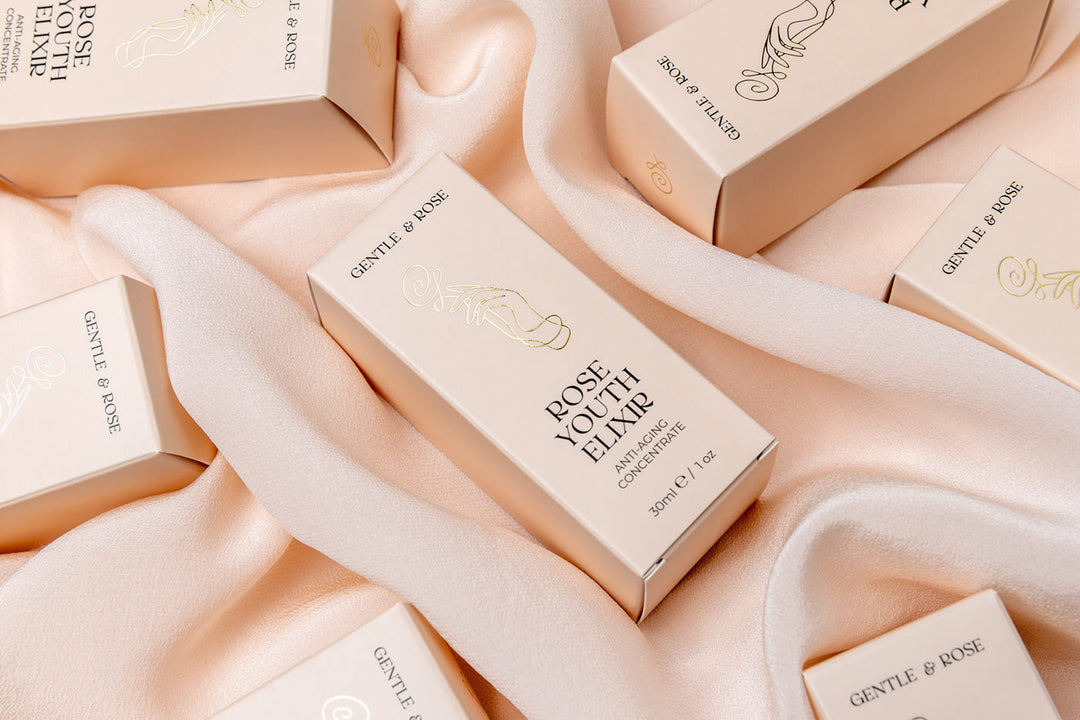Free Radicals: What are They and How Do They Affect Your Skin?
Free radicals are molecules that can cause significant damage to your skin, particularly as it matures. But what exactly are these mysterious agents, and how can you protect your skin from their harmful effects?
What are free radicals?

Free radicals are unstable molecules that form in the body as a result of both internal processes and external environmental factors, such as pollution, UV rays, and stress.
These molecules are missing an electron, which makes them highly reactive. In an effort to stabilize, they seek out electrons from healthy cells, leading to oxidative stress.
This oxidative stress can cause visible signs of skin ageing, such as fine lines, wrinkles, sagging, and uneven skin tone.
Over time, the skin’s natural ability to repair itself weakens, allowing free radicals to cause even more harm.
Where Do Free Radicals Come From?
Free radicals can be generated both internally and externally. Internally, they form as a byproduct of normal metabolic processes, such as energy production in cells.
Externally, they are triggered by environmental factors like pollution, cigarette smoke, UV radiation from the sun, and even stress.
Exposure to these elements can significantly increase free radical production, leading to accelerated ageing and skin damage.
Common Example: Sun Exposure

One of the most common sources of free radicals is excessive sun exposure. When your skin is exposed to UV rays, it triggers the production of free radicals in your skin cells.
These free radicals attack collagen and elastin, leading to premature wrinkles, fine lines, and sunspots.
This is why wearing sunscreen daily and using antioxidant-rich skincare products are essential for protecting your skin from this type of damage.
How do free radicals affect the skin?
Oxidative stress from free radicals can damage essential skin structures like collagen and elastin, two proteins that keep skin firm and elastic. When these proteins are compromised, the skin can lose its youthful appearance, becoming less resilient and more prone to wrinkles, hyperpigmentation, and dullness.
Beyond just aesthetic effects, free radicals can also hinder the skin’s natural repair mechanisms, making it harder for your skin to recover from environmental damage.
Antioxidants: Your skin’s defense

The good news? Antioxidants are your skin’s best defense against free radicals. They neutralise free radicals by donating an electron, effectively halting the chain reaction of oxidative stress. This is where certain natural ingredients shine.
Bakuchiol

Bakuchiol is a powerful, plant-derived ingredient known for its antioxidant properties. Often touted as a natural alternative to retinol, it helps stimulate collagen production, reduces the appearance of fine lines, and improves skin tone—without the irritation that retinol can cause.
Bakuchiol works to combat free radical damage, allowing your skin to repair and renew itself more effectively, making it ideal for mature skin.
Bakuchiol is one of the three hero ingredients in the Rose Youth Elixir, which is one of our best-selling products, approved by more than 30 000 women in Europe.
Rosehip oil

Rich in vitamins A, C, and essential fatty acids, rosehip oil is a nourishing antioxidant that helps restore skin elasticity and repair visible damage. Its vitamin C content makes it a potent tool in brightening the skin and evening out discolouration caused by oxidative stress.
Rosehip oil is also deeply moisturising, which is key for keeping mature skin supple and resilient against environmental aggressors.
You can find Rosehip oil in the Prebiotic Moisturising Cream, which supports healthy skin barrier and ultimate hydration.
Kakadu plum

Kakadu plum is one of the richest natural sources of vitamin C, making it a powerful antioxidant for combating free radicals. Vitamin C helps neutralize oxidative stress, boosts collagen synthesis, and brightens dull skin.
Kakadu plum’s high antioxidant content makes it especially effective in revitalizing mature skin, helping to reduce the appearance of sun damage, fine lines, and wrinkles.
You can find Kakadu plum as a hero ingredient in the Antarctic Sun Defence.
Melatonin
Melatonin is not just for regulating sleep; it’s also an excellent skin protector. When applied topically, melatonin helps to enhance your skin’s ability to defend itself against environmental stressors like UV rays and pollution, both of which generate free radicals. Melatonin can help boost the skin’s antioxidant capacity, reinforcing its natural defense mechanisms.
How to incorporate these ingredients into your skincare routine
Using skincare products with antioxidants like Bakuchiol, rosehip oil, Kakadu plum, and melatonin can significantly improve the health and appearance of mature skin. Here’s how you can integrate them into your routine:
-
Cleanse: Start with a gentle, antioxidant-rich cleanser that removes impurities and prepares your skin to absorb nutrients.
-
Serum: Apply a serum containing Bakuchiol or Kakadu plum extract. These ingredients work to reduce fine lines, brighten skin tone, and protect against further damage.
-
Moisturise: Follow with a moisturiser that includes rosehip oil to deeply nourish your skin and lock in moisture. This helps to restore the skin’s barrier and support its ability to repair itself. Try the Prebiotic Moisturising cream which is infused with a high dosage of rosehip oil.
-
Night Care: Incorporate melatonin into your evening routine. A night cream or serum with melatonin can help your skin recover while you sleep, maximising its repair cycle and defending against free radicals overnight.





Leave a comment